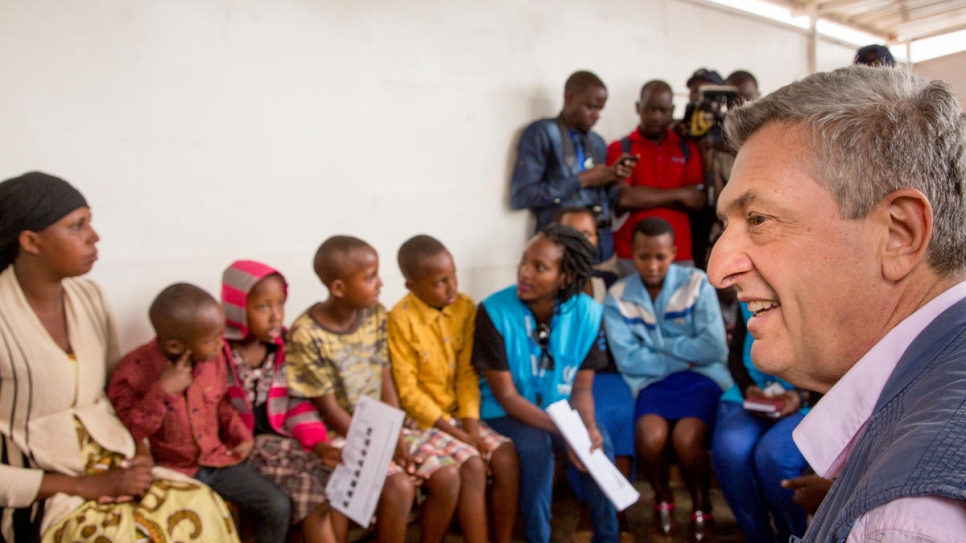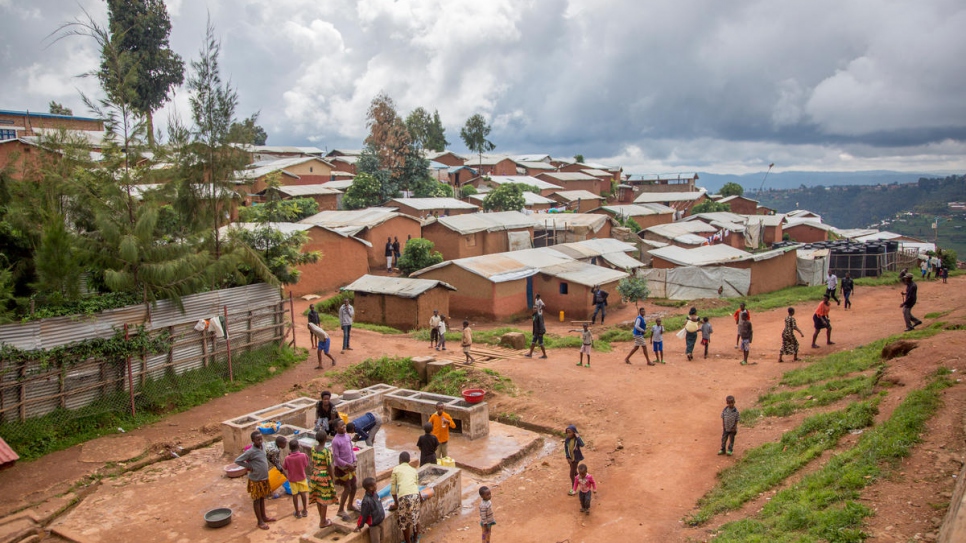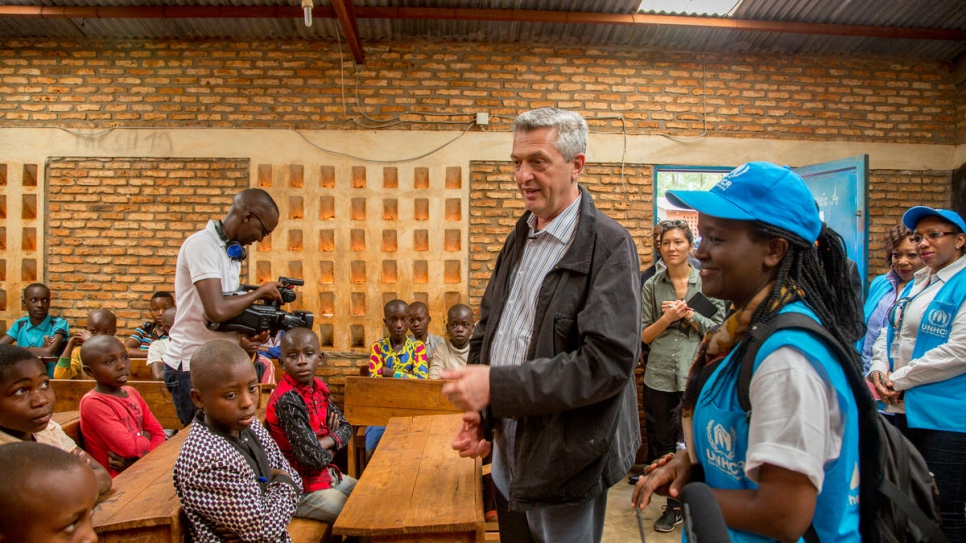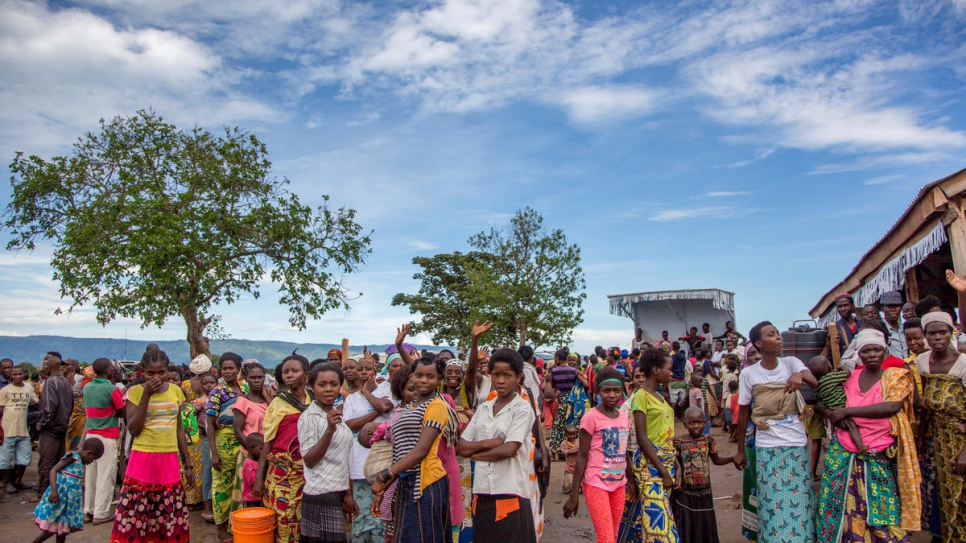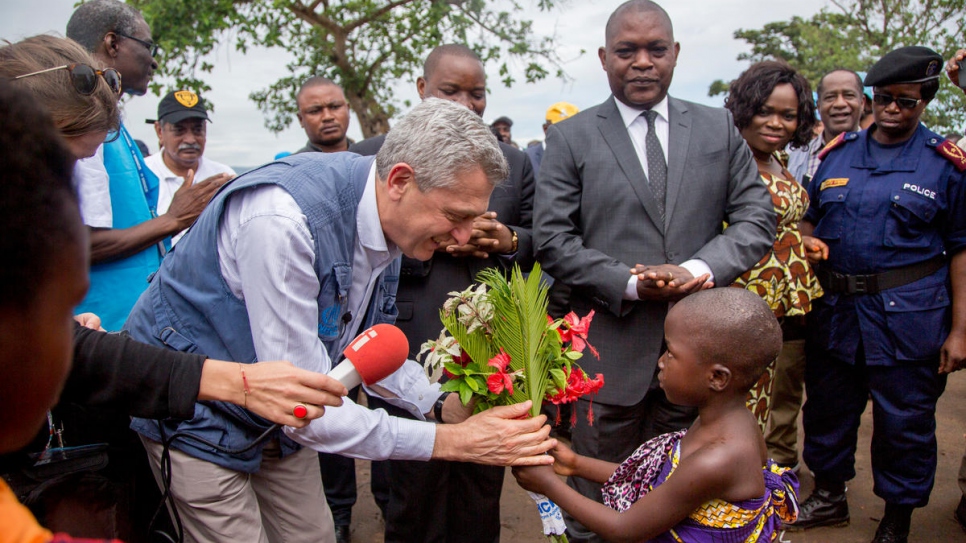UNHCR chief calls for increased support for Congolese refugees
In a week-long trip to Africa's Great Lakes region, Filippo Grandi calls for renewed efforts to find solutions for refugees.
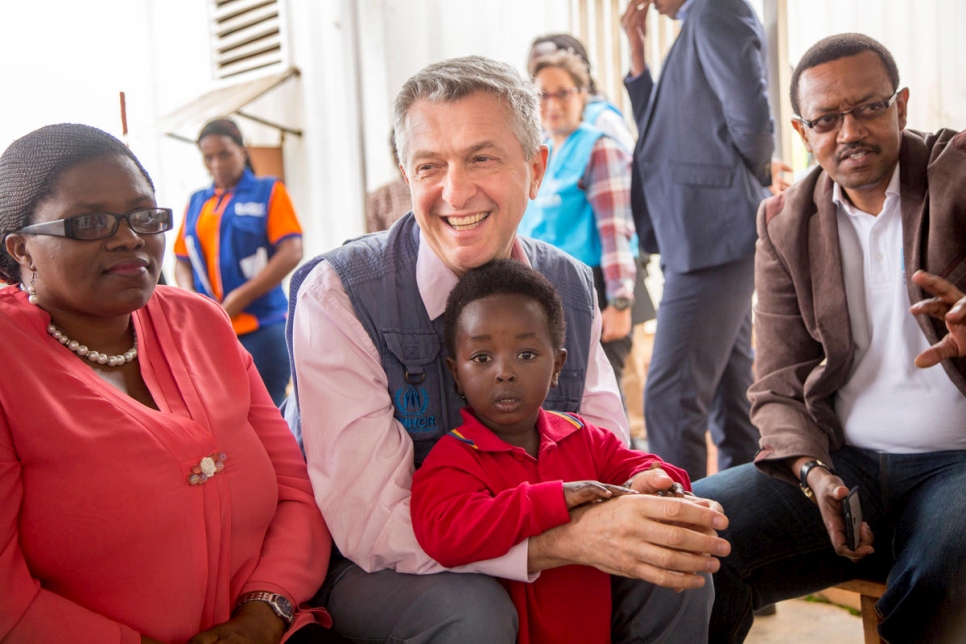
UN High Commissioner for Refugees Filippo Grandi meets families at Gihembe refugee camp in Rwanda during a visit to the Democratic Republic of the Congo, Rwanda and Burundi. © UNHCR/Georgina Goodwin
MUSASA, Burundi – UN High Commissioner for Refugees Filippo Grandi has called on the international community to give increased support to the Democratic Republic of Congo, Rwanda, and Burundi and as they step up efforts to find lasting solutions to the protracted refugee situations of the Great Lakes region.
Grandi said that the Central African neighbours, all of whom shelter large numbers of refugees from each other, must work closely together and renew efforts to put an end to the result of more than two decades of inter-linked and overlapping conflicts.
Praising these countries’ generosity, Grandi assured all sides that the UN Refugee Agency, UNHCR was on hand to support dialogue and pledged to raise the issue of increased funding a conference on the humanitarian situation in DRC, including Congolese refugees and internally displaced, in Geneva on Friday.
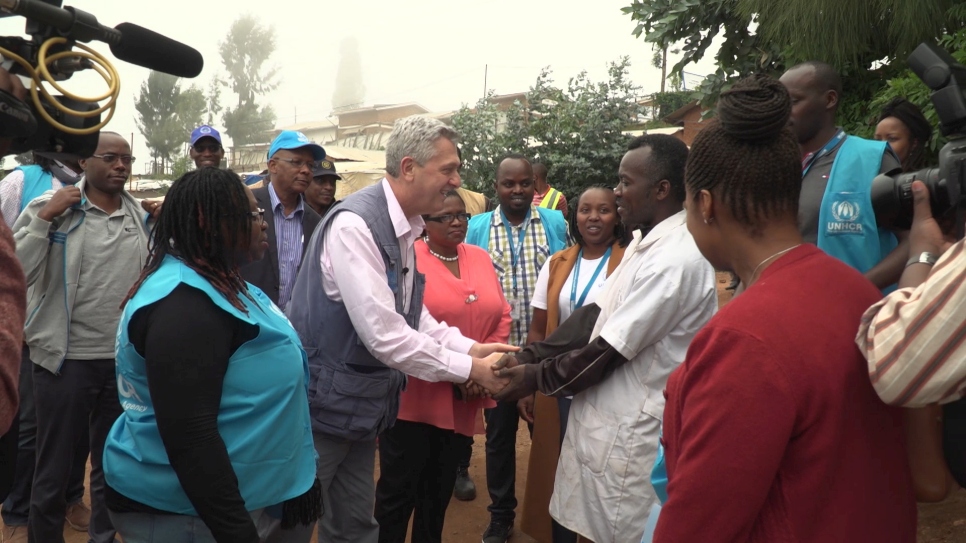
UN Refugee Chief Urges Support for DR Congo Refugees (Dana Hughes, producer / Arnold Temple, cameraman-editor)
“There are several countries in this region that continue to host a large number of refugees. The total number is about 700,000 and I think there has to be more recognition of this effort that has now gone on for many years,” the UN High Commissioner for Refugees declared as he wound up a week-long visit to the region.
Humanitarian conference on DRC in Geneva today is an important opportunity to mobilize resources in support of Congolese people including the 750,000 who are refugees abroad. pic.twitter.com/lK8wYVXJwP
— Filippo Grandi (@RefugeesChief) April 13, 2018
“The generosity of these host countries and host communities who are sharing meagre resources needs to be recognized. This generosity should not be taken for granted, these countries need support. What I have seen here is that still some very basic needs here are only partially met,” Grandi added.
During his visit Grandi met Congolese refugees in Rwanda and Burundi, Burundian refugees in DRC and Rwanda, and Rwandan refugees, preparing to go home after more than 20 years, in Congo. All told him similar things. They wanted peace and security so they could work and provide an education for their children.
Many spoke of the hardships caused by large population movements and insecurity – inadequate housing, insufficient food, overstretched educational and health facilities. Most said they wanted to work and be self-reliant.
In Burundi, he met a group of young refugees who referred to him as ‘Papa’ and asked him to try and provide them with more opportunities.
Grandi said their concerns pointed up the need for a more inclusive approach. Future support must include the refugee dimension until durable solutions are found.
“The future is theirs to build. And we need to help them to do that, not just hand out relief items and food. But also help them learn a trade, help them to have a better education, help them to have better mobility in the country so that they can go out and look for employment,” he said.
He added it was crucial to have an holistic approach and also provide development to the host communities.
Congolese refugee women in Musasa, Burundi, refuse to depend on aid alone, and start small businesses thanks to a microfinance project run by @theIRC. pic.twitter.com/n9umQeoPKO
— Filippo Grandi (@RefugeesChief) April 12, 2018
“Humanitarian assistance continues to be important, but we really need to make a step change in the type of support that we provide. We need to encourage more self-reliance, more inclusion in the local communities,” he said.
“We have to also help the local community so that their own economy can absorb an additional number of people of people, and they too can benefit. These are poor areas and they are sharing meagre resources. We thank them for their hospitality,” he added.
Ruzigama Gentil, 22, who borrowed smart white pants and matching shirt, to meet the High Commissioner, said he had arrived in Burundi from Congo’s troubled South Kivu area more than a decade ago aged 11.
He said he had not lost hope, but was frustrated with the lack of opportunities facing him.
“Even if I succeed and get my High School diploma, I can’t find work and don’t have the means for more study. There is no work for us here, when you work it helps you in life,” he said.
All returns must be 'voluntary', says Grandi
In Goma, Grandi met Rwandan refugees waiting to return to a country they left more than 20 years ago, members of a total Rwandan refugee population in DRC of some 220,000.
They told how it was difficult to go to assembly points for onward transfer to the border crossing points without risking attack from “negative forces” opposed to peace.
Grandi welcomed news that some Burundian refugees were returning from Tanzania to Burundi, but underlined that all returns everywhere in the region must be voluntary.
“I met the president of Burundi and many of his officials and they said that everybody is welcome back. I told the president this is good, but what are needed are two things. One is security; people need to be confident that there is security. And two, a good programme of reintegration so that people can rebuild their lives in their own country,” he stressed.

